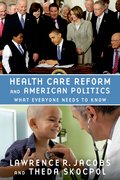Still don’t understand the Affordable Care Act? You’re not alone.
I recently stumbled across the site Act of Law, on which an anonymous woman is reading the entire ACA aloud. “I will read the law for two hours each week and post videos of each reading here on this site,” she writes. “It is 906 pages long (table of contents included) and I estimate that it will take about 60 hours to read.”
The most recent video she posted covers hours 23 and 24 of this project. It appears below with permission.






